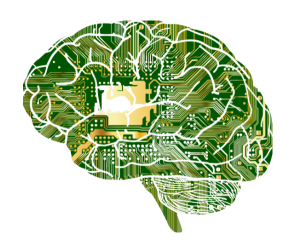AI cheapens artistic expression
March 20, 2023
Although artificial intelligence has opened new doors for people, allowing them to easily generate artwork, writing, and even music, it causes more harm than good.
AI-generated writing usually copies information it finds across the internet, meaning it tends to plagiarize and steal ideas from other writers. This muddies the water when it comes to writing styles and makes people more likely to copy instead of forming their own ideas.
Plagiarism can also become an issue when AI-generated writing is used for school projects and similar works. Now that AI writing is easily accessible to most people, some may choose to use it to make filler writing to complete assignments more quickly.
Additionally, this is a problem since AI-generated writing could be argued as being a form of cheating on school assignments.
Likewise, AI-generated artwork also steals from pre-existing artwork and photographs it can find on the internet. This discourages people from creating their own artwork and forming their own style.
Aside from stealing from other artists, generating artwork with AI also hurts the original artist by cheapening their creations. There is a lot of practice, dedication, and creativity that goes into being able to draw skillfully, especially when it comes to realistic aesthetics.
Now that people have the option of creating artwork with AI, stealing bits and pieces from the work of various artists and forming a talentless creation, actual artists will be less appreciated.
Much of the artwork that comes out of these programs also has a distinctly uncanny and soulless feel to it. Gritty details are usually nonspecific and blurry-looking.
This process may also entail copyright infringement depending on whether the AI is pulling from copyrighted artwork and photos. This can be hard for the program to check for, and most AIs do not decipher between copyrighted material and public domain.
The question of copyright is a difficult and vital one when it comes to these creations. As of now it seems that most artists share a consensus that AI-generated artwork is copyright infringement.
There is also a slowly developing effort for AI to create music. In its current state, it typically splices inputted songs to create mashups. This is generally a safe process, and most people do it for fun, but making money off of it would remain questionable.
Generally, AI-generated media discourages creativity and hurts hard-working artists and writers who spent a lot of time sharpening their craft.



